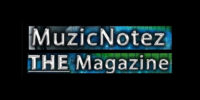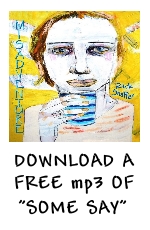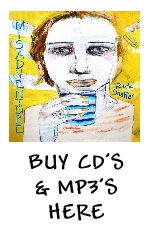
- First off, it’s an honor to be doing this interview with you Rick, thanks for taking the time to sit down with me. What motivated you to start creating music? What age did you begin?
I’ve always been motivated by the danger, groove, poetry in the lyrics, the noise, and expression to live a way of life I love. I really got into music when I was twelve, and I’m still at the beginning, because you never arrive. Once you think you’ve arrived, it’s over.
- Who were your musical influences, idols, or bands growing up that have helped mold you into the musician you are today? Or, helped mold the music that you create?
I was very into the early Rolling Stones and Bob Dylan, which led me to the masters of blues, Muddy Waters, Slim Harpo, Fred Mc Dowell, Jimmy Reed, and rockers like Chuck Berry, Little Richard, and Bo Diddley. They all contributed to my early development, and still influence me today.
- What’s the ultimate goal you want your music to achieve, or for you to achieve in your career as a musician? Any particular message you wish to send?
What appeals to me is creating words and music that have an eternal quality. By that I mean, people remember words, grooves and sounds from reading a novel, or watching a film, and they keep a piece of the experience in their head. My music message is to not become self-conscience, which is death, because then the energy is gone. We always need some kind of psychic purge.
- What’s the greatest concert you’ve ever been to, or performed?
Concert wise, sitting a foot away from Muddy Waters and Fred Mc Dowell live, and seeing Iggy Pop and David Bowie perform together. Some of my most memorable performances, would have to be when my band, The Reds, were on tour with The Police, and on Blondie’s Heart of Glass tour. Back then the audience was more into listening and grooving to the music, and the overall connection with the band, whereas today it seems like the most important part of their concert experience is to film it on their phones, instead of adding energy and being a part of the show.
- What is your recording process?
The process with my solo material, is to capture an idea and immediately get it recorded. I start by using an old 280 Scully eight-track to lay down the guitar and groove, which sometimes involves other musicians, like Boo Boo Spencer on bass drum/spoons, Les Chisholm doing some snare drum and cymbals, and Teddy “Boy” Rixon on bass, and bouncing in a large group of percussive elements like tambourines, maracas and handclaps. All the tracks and vocals are cut live, no punch-ins, but overdubs include some guitar, fuzz bass and background vocals. My main objective is to keep the energy, and not over think the song and final album.
- What were you trying to achieve on the new album, Misadventure?
I wanted a raw, primitive, hard driving energy that is spontaneous, and in the moment. Specifically to draw on lyrical elements to spotlight the cost of blind faith, the rejection of banality, and not accepting what you are told, over what you know. The visual representation is very important to the Misadventure totality, from the CD cover by American artist Jill Emery (formerly the bass player in Super Heroines, Hole, Mazy Star, Shadow Project, and The Decadent), to the Some Say video by director Christopher Kelley. Every element contributes to tell the album’s story.
- What are you trying to accomplish with your songs within the Garage Blues genre?
My idea is to keep that initial immediate feel, and take it to the edge with reckless abandon, which are qualities I have always loved, in recordings by artists that I respect. I like combining the genres of garage rock with delta blues, creating the Garage Blues genre. Lyrically, I want to get the listener thinking, it comes down to them, not other peoples’ opinion of who they are, and not being part of the “herd.”
- What are your influences behind the music you create?
Longevity and consistency in my work, not money or fame. Respected writers/poets, like Joseph Conrad. Arthur Schopenhauer, and Charles Bukowski, and amazing musicians like Muddy Waters, Jimmy Reed, Link Wray and Hasil Adkins, or the great rebel British producer Joe Meek, all continue to inspire and create that eternal influence in peoples’ heads.
- What else are you working on? What can we expect to see and hear from you in the future?
I generally work every day writing and working on sound/groove ideas. Currently, I’m recording some swamp/piedmont style blues, for film work that I’m cutting in a West Virginia studio, with an old Ampex 440 4-track recorder. I plan to continue recording sonic minimalistic sound music, until it kills me.
- Any message for your fans?
My message is, don’t underestimate hard work, stay humble, play it like you feel it, and to know the difference between information and knowledge. It would especially be good to take heed of a quote from Reverend Ike, “I am not other people’s opinions.”
- Hailee Mae – Muzic Notez, United Kingdom, 2014

